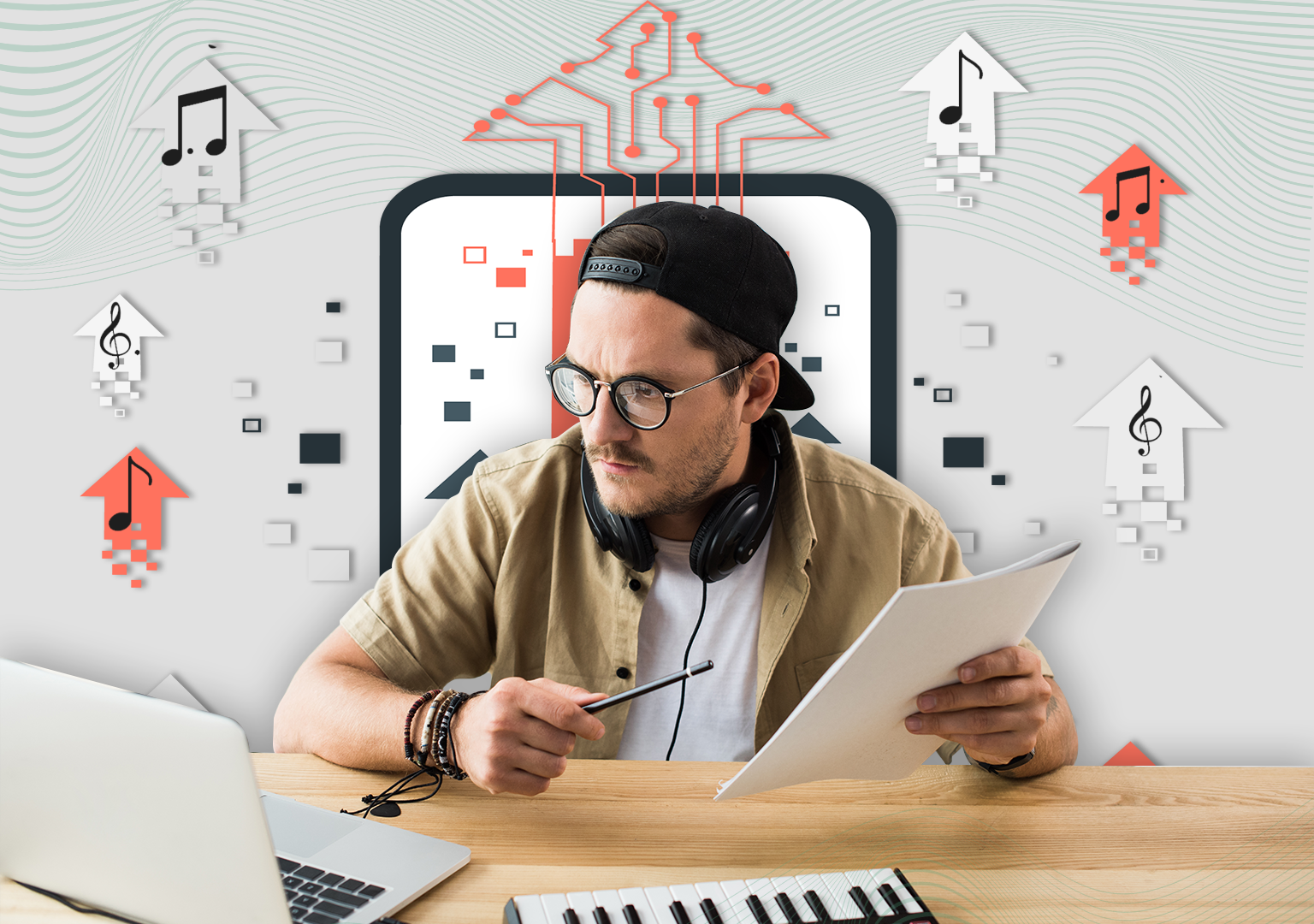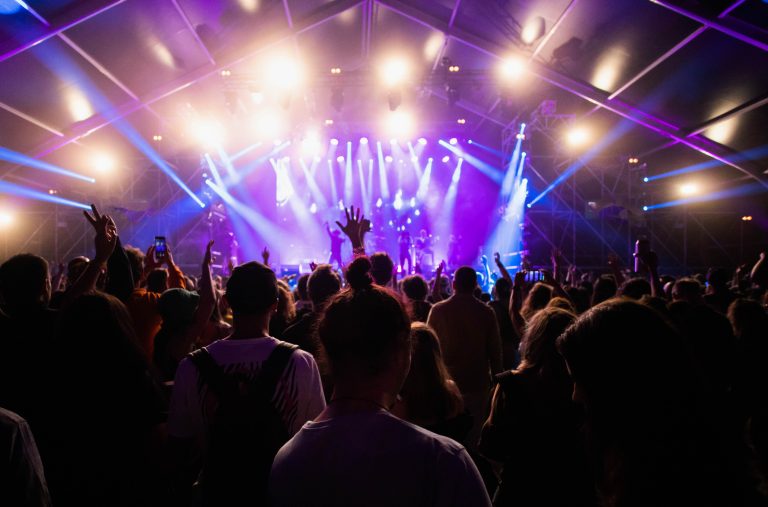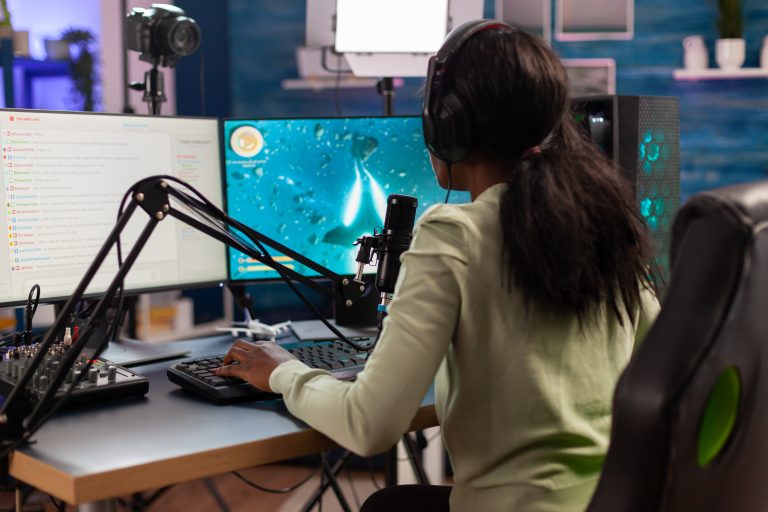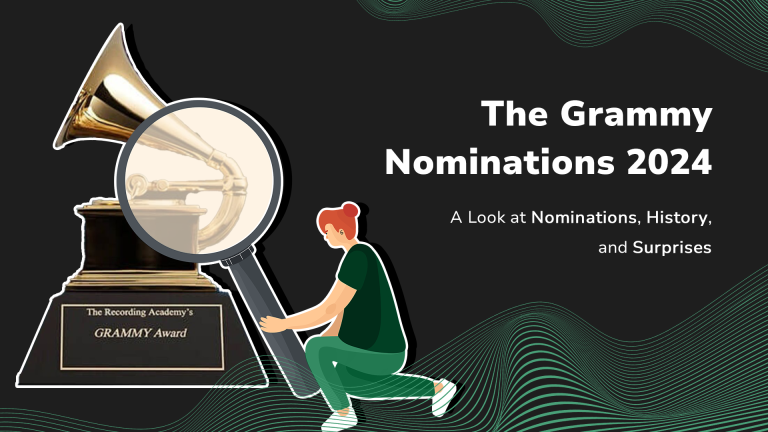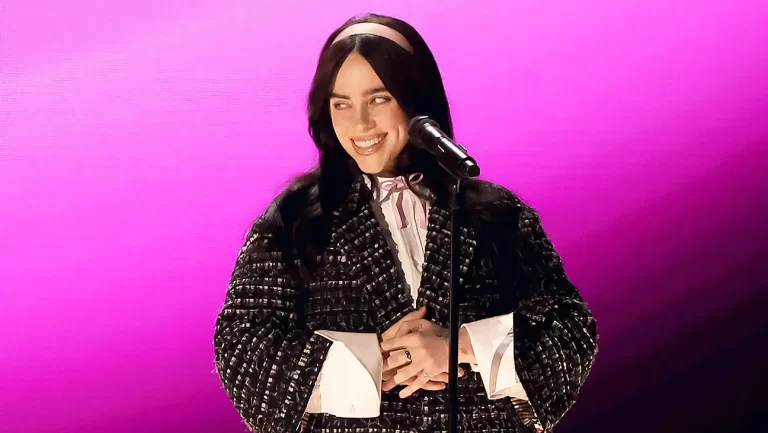Music Industry Trends 2023: Everything you need to know
As we step into 2024, we cannot forget how the music industry has become a living, breathing organism, ever-evolving in a dance to the rhythm of technological advancements and changing consumer behaviours. It was loud yet calm at the same time, as seen by the top music industry trends in 2023.
This blog is your front-row ticket to the trends revolutionizing independent music’s future. Dive in as we uncover the major events and trends that shaped the music industry in the previous year.
Let’s get started!
Top Music Industry Trends 2023 – Creative Collaboration
“You don’t need a record label. As long as you have heart and play with patience, you’ll get what’s coming to you.”
We all saw the rise of multiple independent artists on platforms curated for short-form content like Instagram and TikTok. Create a viral hook, add a catchy step and you have your next trend. Even though trends last for a couple of weeks at best, they helped catapult independent artists into the Grammys and other prestigious ceremonies. These trends and unique ways of collaborating helped independent artists bag more than half of Grammy nominations.
Creativity had no bounds when it came to collaborations in 2023 – video game collaborations to the world singing together on one single project.
Virtual Concerts and their growing popularity
The word “virtual” has become synonymous with almost everything we do, especially after the pandemic. Creativity reached its peak when the world found a way to capitalize on being virtual, transformed from an anomaly to a mainstay.
This realm beyond the stage is all about audience enchantment. Imagine, for a moment, Ariana Grande’s avatar performing in a meticulously crafted Fortnite universe – a testament not only to the boundless possibilities of virtual collaborations but also to the successful blending of gaming and music industries for a holistic entertainment experience.
The best part? It doesn’t end here, virtual concerts started becoming so popular that top bands and artists all over the globe started hosting their own little concerts which saw the rise of apps like Bandcamp, Vimeo, Twitch, Sessions, and others employing thousands of people adding value to the virtual world. Technology is helping change the way we experience music. It is no surprise that it is our top music industry trend for 2023.
Collaborative Projects in the Digital Sphere
As we’ve seen with tracks like “Lean On” by Major Lazer & DJ Snake, the magic of collaboration transcends physical studios. Projects now span continents, with producers, singers, and songwriters weaving their parts into a digital quilt, emerging as seamless anthems that resonate across the globe.
According to the Economist, collaborative projects saw an increase of about 30% by 2018 when compared to the 90s due to the sheer ease of collaborating. With this in mind, it’s fair to say that the collaboration is both the now and future of music, exciting the audience like Billy Rae Cyrus and Lil Nas X in Old Town Road.
Leveraging AR and VR in Music
“What is one man’s waste is another man’s treasure”
When the world was busy contemplating the downfall of AR and VR, the industry used it to create a more immersive and personal experience for their fans.
Delve into the VR concerts of Jean-Michel Jarre, or Björk’s imaginative VR album experiences – where fans explore fantastical realms while immersed in soundscapes. The implication is clear: VR and AR are not merely supplements; they are revolutionizing the way we experience and perceive musical artistry.
Digital Transformation in Music Distribution
What would you do if streaming platforms never existed and you never could have made those soulful playlists? Technology has not only made it easy for the audience but also for artists, who no longer have to release vinyl or a CD and distribute it to the world hoping for people to buy them. Why do you think being an independent artist was a challenge in the past?
This digital revolution in music distribution has helped independent artists distribute their songs faster, for cheaper, and with no compulsion to be backed by labels making their lives much easier.
Streaming dominance and its impact on revenue
Imagine the meteoric rise of artists like Billie Eilish, who, in the comfort of her home, crafted “Ocean Eyes” and streamed it into millions of hearts via SoundCloud. These platforms are not only distribution channels but cultural barometers that shape the soundtrack of our lives.
In the age of streaming, music isn’t just heard; it’s felt, experienced, and shared. Billie Eilish’s journey from a bedroom artist to a global sensation epitomizes the democratization of music, where every artist has the potential to resonate with a vast audience, shaping the sonic landscape of our collective culture.
That’s not all, streaming music has helped independent artists earn a steady revenue stream (an average of $12,000 annually) based on their music all alone. It’s like getting paid for your talent and the way you promote yourself.
Emerging platforms and their influence
Emerging platforms present artists with new canvases to paint their sonic landscapes. Consider the ascent of Bandcamp Fridays, which became a beacon of hope for many independent artists. These platforms not only serve as launchpads for new music but also enshrine the cherished connection between artist and listener.
Similarly, musifie isn’t just about music; it’s a celebration of independence, a direct line between artists and their fans. It’s a testament to the power of community and how, in a world of algorithms, genuine connections between creators and listeners remain at the heart of the musical experience.
The rise of NFTs and blockchain in music distribution
Imagine buying a digital token on the blockchain by your favourite artists putting you in their top 0.01% fan list. Just you, your exclusive NFT, and the independent artist. Well, it’s happening and it’s happening now!
When Kings of Leon offered “When You See Yourself” as an NFT, they didn’t just release an album; they pioneered a new model of musical economics, offering a road map for how blockchain can redefine the value and distribution of music.
In the digital age, music isn’t confined to vinyl or CD; it’s a dynamic, evolving entity. NFTs aren’t just tokens; they’re keys to unlocking a new realm of artistic expression. Kings of Leon’s venture into NFTs is a glimpse into a future where music and technology intertwine, creating an immersive experience beyond the confines of traditional platforms.
Data-Driven Marketing for Musicians
We all have always wondered how statistics will be useful to anyone ever. Well, you as independent artists can benefit so much from reading and analyzing data. It is these technical background tasks that make one artist stand out from the rest.
Data-driven marketing helps you understand your audience, their likes and dislikes, trends to follow, and the way they react to your content. Data helps you curate a precise marketing plan so that you never have to go around in circles figuring out what went wrong!
Importance of data analytics in the music industry
Taylor Swift’s “Folklore” wasn’t just an album drop; it was a data-informed cultural moment. From timing releases to optimizing social media strategies, data analytics act as the maestro, directing the industry’s course to ensure that artists hit the right note with their target audience.
Analytics isn’t just numbers; it’s the invisible force shaping the narrative of our musical journey. Taylor Swift’s use of data isn’t a cold calculation; it’s an artful blend of insights and instincts, creating a symphony of cultural impact that resonates far beyond the charts.
Personalized marketing strategies for musicians
The algorithmic curation of streaming platforms isn’t merely convenient; it’s reshaping how we discover and interact with music. Data-driven personalization creates a soundtrack tailor-made for each listener, while artists harness this insight to strike a chord that resonates personally with fans.
Imagine these as your musical butler, understanding your mood, predicting your preferences, and delivering a sonic experience that feels tailor-made. It’s not just data; it’s the pulse of your personal melody, where technology and individuality dance together in perfect harmony.
Case studies on successful data-driven campaigns
One of the leading artists in the world right now is the Korean group called BTS. Their secret to fame isn’t just their talent or their looks, but their way of analyzing data and creating campaigns based on this reliable data.
BTS’s rise is not solely artistic; it is analytical. By decoding data patterns and fan engagement, they’ve composed an international success story that harmonizes art with insight – a playbook for success in the modern music industry.
BTS’s success is more than a chart-topping phenomenon; it’s a data-driven journey, a collaboration between artists and algorithms. It’s a testament to the power of understanding and connecting with the audience on a global scale, showcasing how the fusion of creativity and analytics can create a symphony that transcends borders.
Independent Artists and DIY Success.
They say it’s not easy to release a song, they say it’s not a reliable career, they say it needs a lot of support and money, and they are straight up wrong! Being an independent artist isn’t tough, it just needs a lot of motivation and love for the art.
You don’t need fancy studios or music videos to be successful, all you need is your voice, and the rest you can learn and do it yourself. Stop listening to “them” and follow your heart!
Empowering independent artists through digital platforms
Independent artists carve their destinies in the music industry’s expansive landscape. Artists like Chance the Rapper have circumvented industry gatekeepers, reaching audiences directly and sculpting a success story that speaks to the power of self-made artistry in the digital age.
Independence isn’t just a label; it’s a revolution in the making. Chance the Rapper’s journey isn’t just about beating the odds; it’s a testament to the limitless potential when artists embrace the digital frontier, forging direct connections with audiences, and proving that authenticity is the ultimate currency in the evolving music scene.
Go out there use those social media platforms, follow trends, stay consistent, and keep your head in the game. Explore new platforms and use them to your advantage to grow and empower yourself and others around you!
Strategies for self-promotion and brand building
Do you need a heavy budget, a team of 20, and expensive equipment to promote yourself as a brand? The answer is a big no. Your audience is human beings and humans are emotional, all you have to do is tap into that emotion, tell your story, and connect with them. Promote yourself by being you and build your brand around who you are and now what a team of 20 thinks about you.
Billie Eilish’s trajectory from a bedroom artist to a global phenomenon isn’t just inspiring; it’s strategic. With social media and digital resources, artists craft intimate narratives that resonate with listeners, turning them into loyal advocates for their musical journey. Billie’s strategic ascent isn’t just luck; it’s a carefully crafted story that resonates with fans, making them not just listeners but active participants in her musical journey.
This is exactly why building your profile is key. Your EPK or your profile acts as your music resume which when viewed by people or stakeholders helps them relate to you better and connect to you as an artist and a human being rather than some star or a money-making opportunity. Platforms like musifie help you craft your ultimate profile with exclusive features and help from industry professionals.
Success stories of independent artists in 2023
Let’s celebrate the breakthroughs and chart-toppers of tomorrow, the independent artists of 2023 who’ve leveraged digital platforms to amplify their voice amidst the industry’s giants, proving that talent, coupled with digital acumen, can indeed conquer the charts.
As we applaud the stars of 2023, it’s not just about breaking records; it’s a celebration of artistic courage. These rising stars aren’t just charting new territories; they’re shaping the future of music, proving that in the digital realm, passion, and innovation can propel independent voices to the forefront of the global stage.
Here are some upcoming artists that we discovered in 2023:
Akai Solo
Ayra Starr
Bandmanrill
Charlotte Adigery and Bolis Pupul
Glorilla
Grace Ives
LIV.E
Mabe Fratti
Mediopicky
Impact of AI on Music
The impact of AI on music is nothing short of revolutionary. Imagine being able to swiftly generate innovative ideas and variations, significantly transforming the creative process for musicians and artists.
AI’s capacity to analyze immense volumes of musical data paves the way for novel insights and trends, offering a remarkable advantage in producing and predicting music that resonates with audiences. This transformative ability to harness AI in music production is reshaping the industry like never before, introducing exciting possibilities and refining the artistry of musical creation.
AI-driven music composition and production tools
In the past, AI’s role in music was seen as peripheral at best, but as of 2023, it has taken a more central role. AI technology like AIVA harnesses algorithmic complexity to compose music that can rival human creativity. This isn’t just about creating new pieces; it’s about expanding the tools available to artists, offering them an endless array of textures and harmonies to enhance their creative visions.
Picture a collaboration beyond the realms of human imagination. AI isn’t just a tool; it’s a creative companion. AIVA and its counterparts aren’t replacing artists; they’re expanding the horizon of possibilities, offering musicians an infinite palette to paint their sonic masterpieces.
Machine learning in predicting music trends
Machine learning and artificial intelligence are total game-changers when it comes to predicting music trends. By analyzing vast amounts of data, these technologies can identify patterns and correlations that might not be immediately apparent to the human eye. This means that they can spot emerging trends and potential hits long before they become mainstream, giving industry professionals a valuable edge in understanding market preferences and shaping their strategies accordingly.
One fascinating aspect is how machine learning can analyze the neural response to music, even within the first minute of a song. This method has shown remarkable accuracy in classifying hit songs, allowing for early identification of potential chart-toppers. It’s incredible to think about the impact this technology could have on the music industry, from guiding artists in crafting their next big hit to helping streaming platforms curate personalized recommendations for their users.
How can you use these tools to drive success?
The collaboration between human musicians and AI has yielded extraordinary projects, showing that AI can now be considered a genuine partner in the creative process. Artists are tapping into these resources to enrich their compositions and production, pushing the boundaries of genre and style.
AI algorithms can analyze audio data, automate tasks such as noise reduction and equalization, and even suggest creative effects. This not only accelerates the production process but also empowers artists to focus more on their creativity rather than spending extensive time on technical aspects. Additionally, AI tools are employed in personalized music recommendations and enhancing the overall fan experience, thereby driving success by connecting artists and their music with the right audience more efficiently than ever before.
Think of it as a dance between the binary and the soulful. AI isn’t overshadowing human creativity; it’s harmonizing with it. The synergy between artists and AI is a testament to the ever-evolving nature of music, where technology doesn’t replace but enhances the very essence of what makes a melody resonate.
Inclusivity and Diversity in the Music Industry
Inclusivity and diversity have become integral aspects of the modern music industry, with a growing emphasis on representing a wide range of cultures, backgrounds, and identities. Artists like Beyoncé have consistently championed inclusivity through their music, lyrics, and public advocacy. Music festivals have made strides towards diversity by featuring a broader array of artists from underrepresented communities, such as LGBTQ+ musicians and artists from various ethnicities.
These efforts not only celebrate the diversity in music but also pave the way for meaningful connections and understanding across different cultures and identities, fostering a more inclusive environment within the industry.
Promoting diversity in music genres and representation
The world is a vast land of diverse cultures and every one of them is equally important when it comes to their contribution to the music industry. All these different cultures together make up the music industry and it is this diversity that helps independent artists connect to their audience across the globe.
Genres like Latin and K-pop have gained international recognition and acclaim, bringing diverse soundscapes and cultural influences to the forefront of the music industry. Artists such as Bad Bunny and BTS have broken language barriers and expanded the global reach of their respective genres, infusing new energy and perspectives into the musical landscape. By championing these diverse music genres, the industry not only broadens its artistic horizons but also opens up new pathways for cultural exchange and appreciation.
The role of inclusivity in fostering innovation
It is important to emphasize the fact that every independent artist, big or small has a role to play in building the music industry and keeping it fresh. Inclusivity helps bring the community closer and create a space for endless musical possibilities.
Take, for instance, the emergence of queer and non-binary artists like King Princess and Arca, who are redefining conventional norms and pushing artistic boundaries. Their influence inspires innovative approaches to music-making and encourages a more expansive and inclusive representation of identities within the industry. By fostering an environment that values diverse perspectives and voices, the music industry cultivates an atmosphere ripe for experimentation and creativity, ultimately driving unparalleled innovation and artistic evolution.
Case studies of diverse and inclusive initiatives in the industry
Let’s look at something super cool. Several initiatives within the music industry stand as exemplary cases of fostering inclusivity and diversity. The establishment of mentorship programs, such as the Women in Music initiative, has played a crucial role in empowering and supporting female musicians and industry professionals.
Additionally, the rising popularity of music labels dedicated to amplifying marginalized voices, such as AfroPunk Records and Azadi Records, evidences a concerted effort to provide a platform for underrepresented artists and diverse musical styles. These initiatives not only showcase the industry’s commitment to inclusivity but also serve as beacons of inspiration, setting a precedent for inclusive practices across the broader music ecosystem.
The Future of Live Performances
The industry is constantly evolving and growing as new technologies and methods are invented. We all enjoy a live concert of our favorite artist but imagine skipping the hassle of standing in lines, being in the middle of a moshpit and barely getting to see your favorite artist in the massive crowd wanting to be closer to the stage. Sounds like a dream right?
Well, this is exactly what hybrid concerts help achieve by getting your favorite artists to perform for you in a virtual setting with the same hype, and same energy but in the comfort of your own space!
Hybrid events and the combination of physical and virtual performances
The future of live performances is undergoing a dynamic transformation, paving the way for hybrid events that seamlessly fuse physical and virtual experiences. Artists are embracing this hybrid model to expand their reach and engage with global audiences.
For instance, the band Gorillaz made headlines with their innovative “Song Machine Live” virtual performances, where they leveraged cutting-edge technology to blend real-time animation with live music, creating a captivating and interactive experience for fans worldwide.
This hybrid approach not only amplifies the impact of live performances but also forges new connections between artists and their audiences, fostering a sense of inclusivity and accessibility across geographical boundaries.
Technological innovations enhancing live music experiences
Technological advancements are revolutionizing live music experiences, enhancing both the auditory and visual aspects of performances. One notable example is Travis Scott’s groundbreaking virtual concert in the game Fortnite, which redefined the possibilities of digital entertainment.
The integration of augmented reality (AR) and virtual reality (VR) technologies has brought about a paradigm shift in live performances, enabling artists to create interactive and visually stunning shows. For instance, the use of AR can overlay digital content in real-time during live concerts, adding an extra layer of visual storytelling to the music. VR, on the other hand, has the potential to transport audiences to virtual environments, giving them a sense of being present at the concert regardless of their physical location.
Such innovative use of technology not only elevates the quality of live performances but also opens up unprecedented avenues for artists to deliver unique, multi-sensory experiences that resonate deeply with audiences.
The evolving role of live performances in artist success
In the evolving landscape of the music industry, live performances play a pivotal role in an artist’s success, serving as a cornerstone for building a dedicated fan base and establishing a strong artistic identity. What might be a concert for others is days of work, practice, and planning for artists.
Artists like Lady Gaga have demonstrated the power of live performances in shaping their success, delivering high-energy and visually stunning shows that resonate deeply with audiences. These live experiences go beyond merely showcasing musical talent; they create lasting emotional connections with fans, ultimately elevating an artist’s prominence and influence in the industry.
As artists continue to innovate and push boundaries in their live performances, these events become integral components in defining their artistic legacy and contributing to their long-term success.
Conclusion:
The music industry of 2023, as depicted in the latest news and developments, was an intricate symphony of technology, independence, and live experiences, all playing together in harmony. Independent artists are flourishing, AI is becoming a true artistic collaborator, and sustainability is entering the spotlight. As we tune into the future, the industry holds a promise not just of entertainment but of cultural evolution and technological wonder—a true concerto of human experience.
As we take a bow at the finale of this musical journey through 2023, we do not just witness the end of a year but a prelude to what lies ahead. The harmony of technology, independence, and live music experiences isn’t a fleeting moment; it’s the start of a future where every note, every beat, and every innovation continues to shape the ever-evolving composition of the musical landscape.
We all have probably heard the phrase, “Change is the only constant” but it is up to us to embrace these changes and adapt as artists. We need to constantly learn and grow in this ever-evolving industry. 2023 was all about learning and becoming better, let’s promise to make 2024 about execution, growth, and success. It is our responsibility to take independent music to the next level and never look back. So go out there and explore the world of infinite possibilities, find inspiration in the smallest things, and never stop being you.
There are platforms out there to help you get better and to grow sustainably as an independent artist like musifie. Go log in and use the platform to create your own story in the world of independent music. musifie helps you connect, collaborate, build your profile, sell your merch, distribute, and it also lets you experiment with projects. The best part? musifie is open to all!
2024 is the year of independent growth and we know that you got this!!

